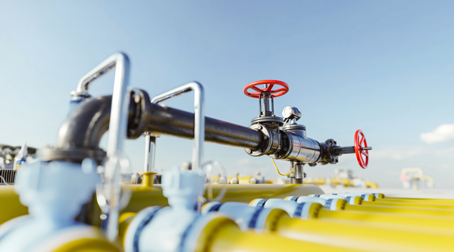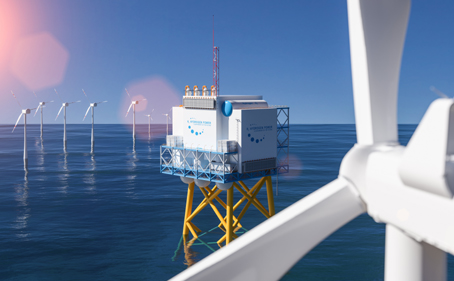
Hari Vamadevan, Regional Director, UK & Ireland, Energy Systems at DNV
Following the launch of the first edition of DNV's UK Energy Transition Outlook (ETO), Hari Vamadevan of DNV explains the role of fossil fuels in the evolving energy mix as the UK’s transition to renewables accelerates over the coming years.
What role will non-renewable energy sources play in the primary energy mix as decarbonization accelerates?
Put simply, the use of fossil fuels will decline rapidly over the next three decades as the UK strives to meet its ‘net zero by 2050’ target. The combined share of non-renewable sources in the energy mix will decline from 80%, today, to 71% by 2030. As part of this, the consumption of oil is expected to be at half its current level. After 2030, the transition to renewables is expected to pick up further traction, which will lead to a repositioning of the traditional power sources to holding less than a third share within the primary energy mix by the time we reach 2050.
Oil and gas will still have a role to play in the years to come, with the UK Continental Shelf (UKCS) still having proven reserves of 2.7 billion barrels of oil equivalent (Bboe) of oil and 3.8 Bboe of natural gas in 2021. Furthermore, there are up to 20 oil and gas projects in concept or front-end engineering design (FEED) stage looking to achieve final investment decision by the end of this year.

Standard gas pipeline set up
What is being done to decarbonize domestic oil and gas production methods?
As we journey further into the energy transition, more significant decarbonization methods will be introduced, in tandem with the steady decline in oil and gas production. Electrification of power sources, primarily from offshore wind, will be one of our most effective tools in the decarbonization of this sector. A key focus of the new licensing round is the reduction of combustion-related emissions and fugitive methane emissions from flaring and venting, with emissions across the sector expected to continue to decline.
The repurposing of existing facilities, including reservoirs and pipelines into stores and transportation for CO2 and hydrogen generated on offshore wind farms, will also form an important part in reducing emissions produced in oil and gas production. This would require placing the decommissioning of several facilities on hold to implement the necessary updates.
How would you describe the trajectory of oil production in the UK in the years ahead?
While we have observed swings in the production rates of oil, it has generally been in decline since the start of the century. Currently, UK oil production is at 0.75 million barrels per day, which is 70% less than its peak in recent decades. This rate is expected to fall further before 2050 as the existing oil fields approach the end of their life cycles. Investment in the UK oil production industry is also expected to fall as global competition in what is becoming a narrower market will make it less attractive for prospective investors.
How significant will natural gas be as an energy source when compared to other non-renewable sources?
Looking at the global level, natural gas will overtake oil in the energy mix as oil consumption continues to fall. The demand for natural gas will remain steady through to 2035, after which it will begin declining, leading to a 50% drop off in European consumption compared to the levels recorded today. Production of natural gas in the UK is also set to decline, while other areas will see increased output. Production will move to new regions throughout the world, with the Middle East and North Africa set to become the top producer of natural gas, replacing North America.

Hydrogen production offshore
With heating at the forefront of people's minds, how will decarbonization impact heating in buildings?
Natural gas is currently the primary energy source used for heating buildings, but this will decline with time. In the run-up to 2040, the energy transition will see buildings switch from gas boilers to electric heat pumps used for space heating. Alongside heat pumps, hydrogen will also have a role to play in heating with the cost of hydrogen set to fall, leading to wider adoption of this energy source. By 2050, buildings that still use natural gas, but have hydrogen-ready boilers installed, will be capable of switching to hydrogen as the primary energy source.
When will coal be phased out of the energy mix?
Since the turn of the century, coal consumption has been in a steep decline, resulting in the net import of coal becoming close to zero, with an 86% fall in 20 years. The wider availability of natural gas for heating, both in homes and industrial settings, led to a reduction in demand for coal when cleaner energy sources were emerging into the market.
While historically the UK has been a net importer of coal, with a greater demand than domestic availability allowed for, the past two decades have seen a rapid shift with coal’s share of the energy mix dwindling. As a means of generating electricity, coal will be fully phased out by 2025, with only three coal-fired power plants remaining in current operation in the UK. Today, coal is primarily used in manufacturing, but even this has seen a decline when compared to its use in past years. Coal is travelling down the road to becoming removed from the energy mix at speed, with close to zero usage in the UK by 2040. It is expected to be fully phased out by the middle of the century.
About DNV
DNV is a global quality assurance and risk management company. Driven by their purpose of safeguarding life, property and the environment, the company enable their customers to advance the safety and sustainability of their business. DNV provide classification, technical assurance, software and independent expert advisory services to the maritime, oil & gas, power and renewables industries. The company also provide certification, supply chain and data management services to customers across a wide range of industries. Combining technical, digital and operational expertise, risk methodology and in-depth industry knowledge, DNV empower their customers’ decisions and actions with trust and confidence.
DNV continuously invest in research and collaborative innovation to provide customers and society with operational and technological foresight. With origins stretching back to 1864 and operations in more than 100 countries, the company's experts are dedicated to helping customers make the world safer, smarter and greener.
Overview of energy services:
Maritime
Manage risk and ensure availability of vessels and units in both shipping and offshore sectors
Oil and Gas
Safe, reliable and enhanced performance through integrated assurance, advisory services and offshore classification
Energy
World-renowned testing and advisory services to the energy value chain including renewables and energy efficiency
Business Assurance
Assure performance of organizations, products, people, facilities & supply chains through certification, verification and assessment
Software
Solve design, engineering, risk management, asset integrity and optimisation challenges
DNV GL Rules and Standards
Access rules for classification, service specifications, standards and recommended practices and more
KeyFacts Energy Industry Directory: DNV l KeyFacts Energy News: Energy Transition
 KEYFACT Energy
KEYFACT Energy